SUBSCRIBE AND SAVE! | SIGN ME UP!
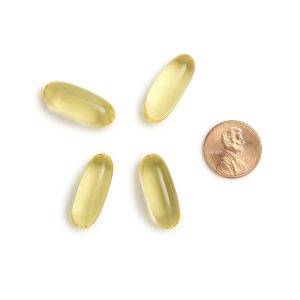
Written by MacuHealth
Reviewed by Jim Stringham, Ph.D.
The nutrients included in high-quality supplements offer plenty of health benefits for the human body and fill the nutritional gaps missing from the modern diet. But not all of them are created equal.
“We confirm that a number of commercially available carotenoid food supplements do not achieve their label claim,” explained Dr. David Phelan, Professor John Nolan and Dr. Alfonso Prado-Cabrero in their study on supplements in the journal Nutrients.1
A nutritional supplement’s effectiveness depends on absorption inside the body. But if it offers little to no bioavailability or your body has a difficult time absorbing its nutrients, then it’s not doing you any good.
What is bioavailability, and why is it so important? Bioavailability is effectively absorption – the fraction of active ingredients absorbed into the body’s circulation. It’s dependent on many factors. Knowing if a supplement has high bioavailability is crucial for a nutrient to be effective. Bioavailability also ensures that consumers are getting what they’re paying for. We’ll look at how bioavailability is measured and how supplements retain their potency.
We absorb the ingredients we ingest in different ways. Some nutrients, such as carbohydrates and proteins, are easily processed into our bloodstream. But vitamins, minerals, antioxidants and other nutrients are more complicated, making it more difficult for our bodies to break them down and absorb them.
For example, a medication injected directly into the bloodstream should have 100 percent bioavailability. But an orally taken drug or supplement must pass through several barriers inside your body, such as your intestinal wall and liver. Some nutrients, such as Vitamin C, are water-soluble, meaning they’re absorbed when taken with water. Other nutrients, such as Vitamin E or carotenoids, are lipid-soluble, meaning that a small amount of fat is necessary for their transport across the intestinal wall into the bloodstream.
With orally ingested nutritional supplements, the fraction received by the body is usually measured with a blood draw. It won’t give you the exact fraction absorbed (higher is better), allowing for comparison among supplements and significant differences between them.
Though a supplement’s label may claim a certain amount of an active ingredient, the truth is that due to external factors, low-quality formulations and cost-saving techniques, it might be significantly lower. Factors that can alter the bioavailability of nutrients in supplements include the molecular structure of the active ingredients, the encapsulation process and your body’s own response.
The molecular structure and formulation of ingredients matter. For example, fish oil has re-esterified triglyceride and ethyl ester forms. While the latter is significantly cheaper, it’s much harder to absorb because of its synthetic form. The body recognizes re-esterified triglyceride fish oils, allowing them to be more easily absorbed.
Supplements are encapsulated in many forms: powder, softgel, liquid, etc. Powder-filled capsules tend to have a higher chance of degrading and losing bioavailability due to their clear interlock, making them more susceptible to light and oxidation. On the flipside, oil-filled softgels have airtight closing with more protection from heat, light, and oxygen – factors that can significantly degrade nutrients.
Lastly, your body’s metabolism can affect how you absorb medications and supplements. Our natural digestive enzymes, like stomach acid, or certain intestinal disorders involving inflammation, can impair the passage of these essential substances into the bloodstream. As we grow older, our stomach produces less acid, which compromises our ability to absorb nutrients.
One thing a patient can do is check the label of their supplement. The manufacturer may recommend taking one with a meal because certain nutrients are fat-soluble, meaning they’re better absorbed with food. Taking a formulation with breakfast or dinner ensures the body receives all the active ingredients in a supplement.
Another thing to look for on the label is if the supplement is in tablet or capsule form. Most capsules contain oil-based formulations that are more stable and less likely to degrade than a tablet. Lastly, good nutritional supplements usually have peer-reviewed science behind their formulations. In their study, Dr. Phelan, Professor Nolan and Dr. Prado-Cabrero stated they believe that “clinicians and consumers should select…products which have appropriate scientific evidence confirming product stability and efficacy.”
Eye supplements like MacuHealth feature Micro-MicelleTM Technology, which enhances the stability and bioavailability of the three carotenoids found in its patented formulation. In a recent clinical study, its formula provided the highest bioavailability with significantly higher serum and retinal response compared to a standard macular carotenoid supplement.2
Supplement Certified, an independent certification team based at the Nutrition Research Centre Ireland (NRCI) within the Waterford Institute of Technology, provides a rigorous analysis of supplements to ensure that their active ingredients retain their potency and stability throughout their shelf-life. MacuHealth is honored to carry its seal on all its products.
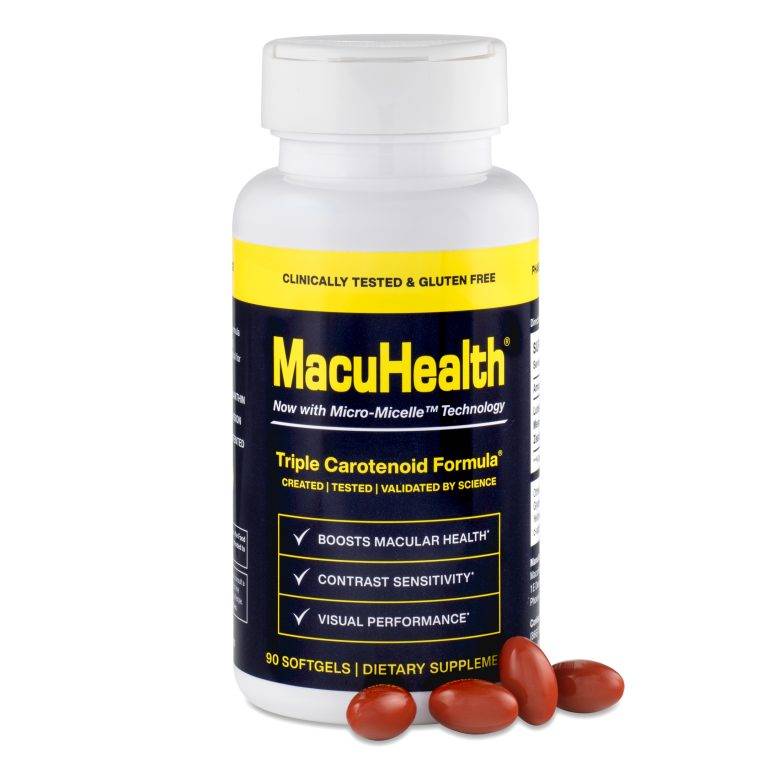
Formulated by scientists and clinically proven to support eye health for both healthy and diseased eyes.
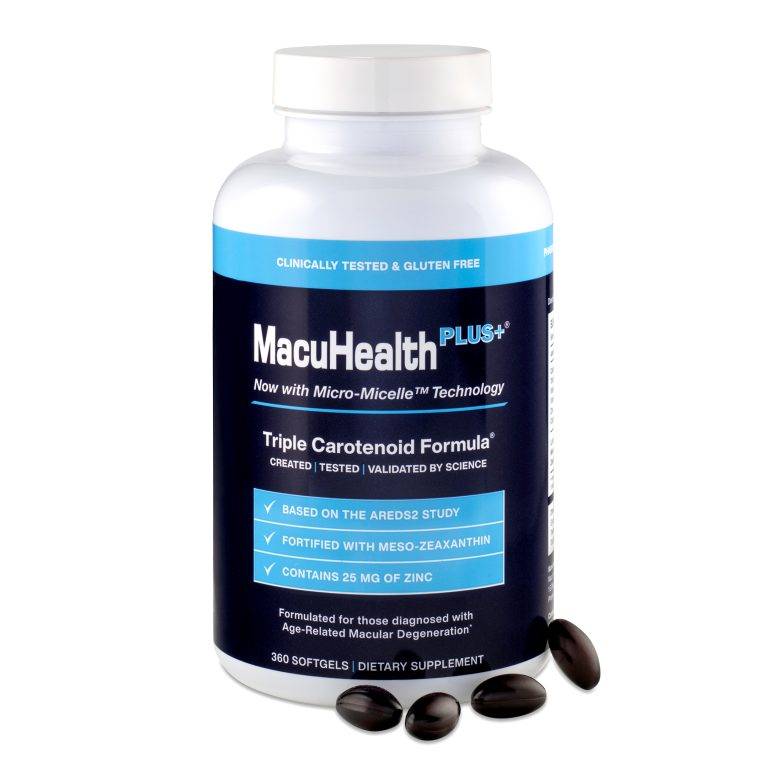
Based on the AREDS2 formula with 10 mg of Meso-Zeaxanthin and reduced levels of zinc for the ultimate defense against AMD.
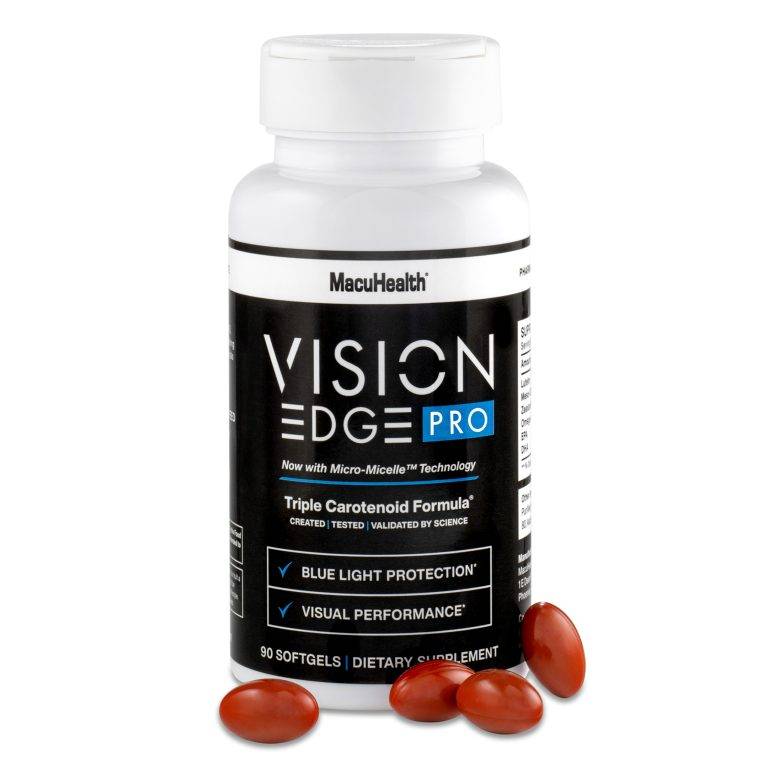
Created for those wanting to protect against blue light and improve visual performance for everyday maintenance.
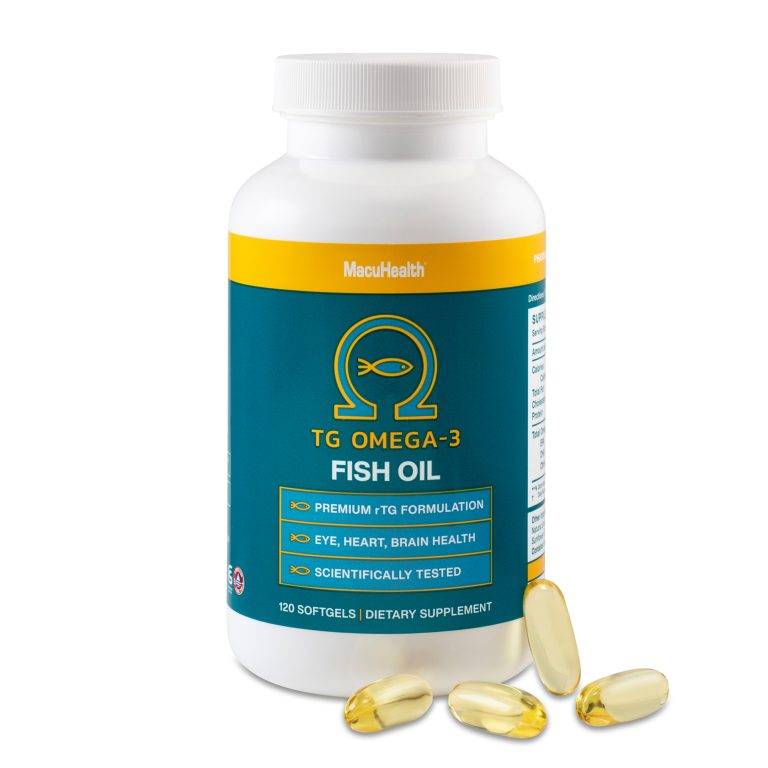
Sourced from small, open-water catch fish from the coast of Chile, TG Omega-3 provides customized dosing for patient specific needs.